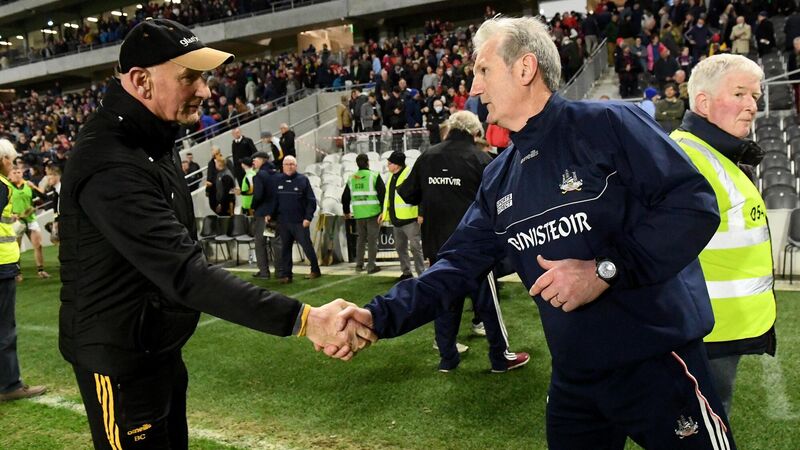John Fogarty: Cork no longer needs to say sorry

Cork manager Kieran Kingston shakes hands with Kilkenny manager Brian Cody after Saturday night's Allianz League semi-final at Páirc Uí Chaoimh. Picture: Eddie O'Hare
Watching Cork players being fouled repeatedly in the first half of Saturday’s Division 1 semi-final, it appeared the same afflictions that have hampered them for so many years were cursing them once more.
Too pure, too passive, too naïve, Kilkenny were only too happy to mow them down, arrest their hard running and live with the consequences of Patrick Horgan converted frees.








